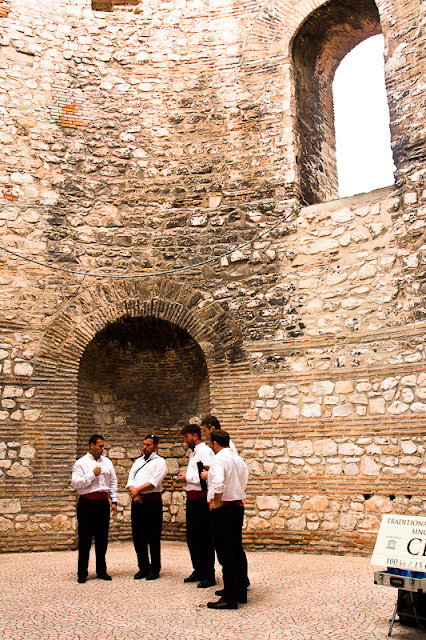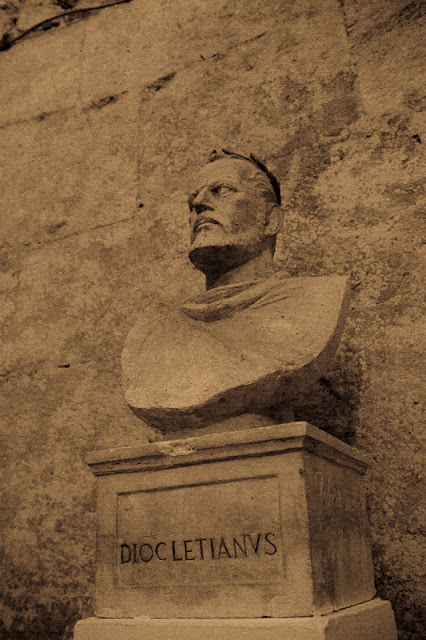After my stay in Hvar and Stari Grad, it was time to continue back to mainland, this time to Split. This was my second time in this Croatia’s second biggest city and so far this town hasn’t made me yearning back. It’s nice place, but it’s also really crowded with tourists and after visiting several smaller island towns that hit me against my face... Although Split is really historical city, in my opinion many other Croatian cities are still much more interesting and charming to visit. But if you anyway decide to visit Split, the historical city center is place to start.
The history of Split is rich and it has been seeing many different periods. Before Croatia’s independence it has been ruled by Greeks, Romans, Venetians, Austrians, French, Kingdom of Serbs, Croats and Slovenes, Italians, briefly by Germans and then Yugoslavians. It’s historical center is home for one of the three UNESCO World Heritage Sites located in the county. Here you are able to wander around and investigate the ruins of Diocletian’s Palace, the Palace which construction was started 1720 years ago! History and today are living hand in hand in historical center of Split…
“The ruins of Diocletian's Palace, built between the late 3rd and the early 4th centuries A.D., can be found throughout the city. The cathedral was built in the Middle Ages, reusing materials from the ancient mausoleum. Twelfth- and 13th-century Romanesque churches, medieval fortifications, 15th-century Gothic palaces and other palaces in Renaissance and Baroque style make up the rest of the protected area.” -UNESCO
Split is also known as Croatia’s sport capital. Compared to its size, it has been one of the most successful cities in Olympic Games history. In my last morning in Split I decided to honour that and I went to run around peninsula of Marjan early in the morning. That was maybe my favourite time I spent in Split and I enjoyed a lot the peaceful forest and sea views around Marjan. But before I reached there I started my run from the Split’s west side sea promenade where you can find all the names of all those Olympic medalists. The list starts from Helsinki 1952 and it ends up in London 2012. You can find there 73 plagues currently…






No comments:
Post a Comment